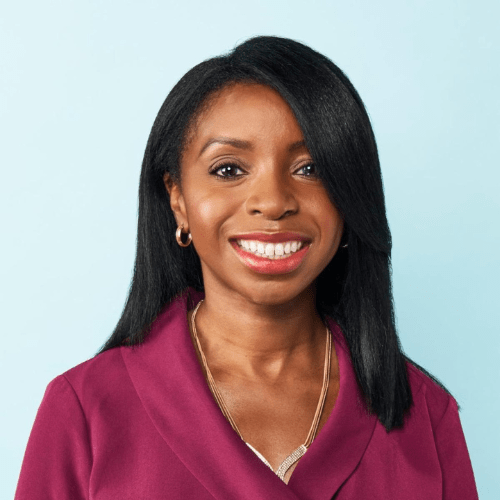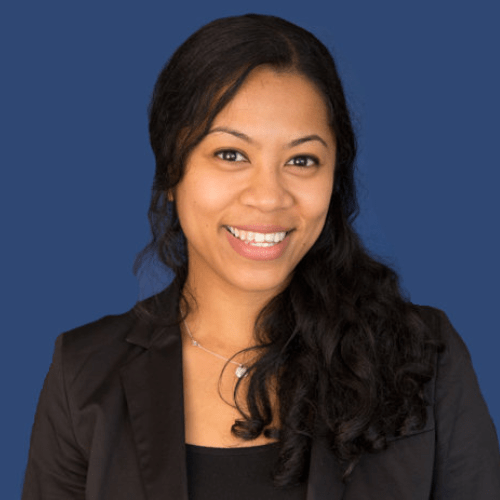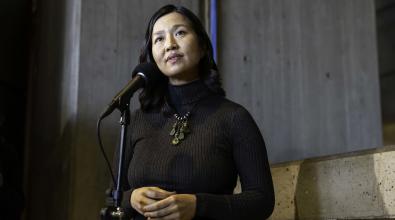What Works Cities expansion drives data to new heights

As the movement to use data to improve the work of local government blossoms and matures, What Works Cities Certification has become a critical driver of that progress—and the leading barometer of how far cities have come.
What Works Cities Certification is the standard of excellence for what data-driven, well-managed local government looks like. Launched in 2017 by Bloomberg Philanthropies and led by Results for America, the program assesses how well cities are using data to deliver results, recognizes those who are leaders, and offers support and assistance to help cities improve. In just five years, 55 cities have achieved Certification.
Now, What Works Cities Certification is entering a new phase. This week, the program released new, updated criteria for the practices cities must have in place to earn Certification. Those include a deep focus on equity and resident engagement, as well as clear linkages between cities’ data practices and the outcomes they aim to achieve for residents. In addition, the Certification program is expanding beyond the United States to invite participation by cities in Canada, Central America, and South America.
“Local leaders everywhere are focused on creating safe, vibrant, equitable communities—and they are using data in ever more creative and sophisticated ways to power progress,” says James Anderson, Government Innovation Lead at Bloomberg Philanthropies. “By expanding What Works Cities Certification, we are creating a global community of public servants focused on bringing local governments into the future.”
To learn more about what’s ahead, Bloomberg Cities caught up with Rochelle Haynes—What Works Cities’ new managing director—and Lauren Su, who directs the Certification program.
Rochelle, congratulations on your new role as leader of What Works Cities. First, tell us about you and what drew you to this work improving how cities use data?
Rochelle Haynes: The common thread of my career has been to focus on policies and programs that seek to identify solutions to ending the cycle of poverty. I have had the privilege to serve individuals, families, and children through work in the government, nonprofit, and philanthropic sectors.
I've spent the majority of my career in local government, leading on policy and strategy work in the areas of affordable housing and social services. My last role was as Chief of Staff at New York City's Department of Homeless Services, focusing on homeless prevention services and providing wrap-around services for at-risk families.
Later, I worked at the Rockefeller Foundation leading operations and strategy for the 100 Resilient Cities initiative, helping cities think about how to prepare for shocks like climate change as well as develop proactive solutions for stressors such as unemployment and homelessness. I was engaging city leaders globally on sharing best practices on those topics and many others. That led to an exciting opportunity at Sesame Workshop, where I developed and led the U.S. Social Impact program and strategy. This was an interesting pivot because I was able to understand how many of the adult-facing issues that I worked on during my time in city government are often rooted in early childhood experiences and development.
The What Works Cities program is deeply exciting to me because it connects me back with cities, and supporting them in ways that are very much needed. As someone who led programs at the city level, I know how important it is to be able to step back from your day-to-day and think about how you use data and evidence to make effective strategy and policy decisions that will have lasting impact.
Let’s turn to What Works Cities Certification. How has this program grown and helped drive the movement for data-driven local government?
Lauren Su: When we first launched the Certification program five years ago, it wasn’t clear that any cities could achieve our standard. The practices we put out there—so many cities were far from it. In our first year, only nine cities achieved Certification. Now, we are up to 55 cities. Just that number alone has shown to us that this is really happening in cities now. Leaders are prioritizing this, people are in place within city governments in order to lead the work, and staff within cities are able to run with data, analyze it, and use it to inform decision making.
How have city leaders been able to leverage Certification to advance the work?
Lauren Su: One thing that’s been really important is building a common language. It’s helpful across cities—and even just within one city—to have everyone talking about the same topics and using the same terminology and definitions.
Also, having a third party establish what best practice is in the field enables city leaders to promote the work and serve as a catalyst to prioritize and invest in these practices.
Why is it time to update the Certification criteria?
Lauren Su: The cities are moving fast on these practices, and the field is evolving quickly. As cities get more skilled at using data, we need to make sure we’re reflecting best practices and keep raising the bar to challenge them to do more.
Rochelle Haynes: COVID also exposed a lot of pre-existing inequities in cities. As we started to analyze COVID data, we could see that communities of color were disproportionately impacted. What became important is the ability to disaggregate public-health data—being able to take a dataset and talk about public-health needs and strategies from the perspective of race, gender, and socioeconomic status as a way of uncovering inequities. Disaggregation of data is how we’re going to have more robust conversations about equity, and how we’re going to improve resident-level outcomes.
How is equity reflected in the new criteria?
Lauren Su: We’re asking cities to demonstrate that equity is not a separate area to be considered, but shows up in every data practice. Take results-driven contracting: We're asking if you're collecting performance data from vendors in disaggregated form so that you can see if you're spending your dollars in a way that advances equitable outcomes. The idea is that equity is part-and-parcel of the way decision making is done with data and evidence.
Rochelle Haynes: For city government to talk about issues of race and equity, and being upfront about challenges, is critical. Embedding equity within our criteria further elevates the necessary conversations about inequities in a way that we haven't been able to do so in the policy field, which is why it was important for the Certification criteria to embed it in every data practice.
What’s an example of what ‘good’ looks like?
Lauren Su: San Antonio, Texas, is a great example. Their Office of Innovation was founded back in 2008 and they were silver Certified in 2021. Their equity work served as a model for our City Budgeting for Equity and Recovery program. Their Equity Atlas is an interactive tool that maps demographics and disparities across the city. It’s a great example where a city is pulling disaggregated data, making it available publicly, making it available for staff, and using it to inform budget decisions.
Rochelle Haynes: For elected officials and policy officials, the reason we all came to this work is to impact residents’ lives and have positive outcomes. At this juncture, where folks are focused on finally rolling up their sleeves to deal with the deep-rooted and institutionalized inequities within our systems—in a targeted and systemic manner—this feels like the time to talk about long-standing issues by race, gender, socioeconomic status, etc. The COVID-19 crisis, unfortunately, further exacerbated the poverty and housing crisis in this country and globally. So to me, the question is how do we leverage this momentum on equity and connect it to solutions and outcomes for people—we always have to remember that it’s about people. If we connect our work to improving the lives of people, that’s what good looks like.
How about resident engagement? How does that focus show up in the new criteria?
Lauren Su: As Rochelle said, people are at the center of this work. So, it's important that residents are involved and there is a continuous feedback loop between the elected officials and city government and their residents. We also want to make sure that cities are hearing from folks who may not have the loudest voices or be in the most active communities with the most influence.
In the criteria, we are asking cities about their practices for gathering that kind of information, and to demonstrate how they're using it in their decision-making process. It shows up, again, in all our criteria.
Rochelle Haynes: City government works for people. If I am of service to you, your voice is the voice that matters more than my own. This is about creating space for that. Often in the past, decisions were made in a room with folks who maybe didn't have that lived experience—with poverty, for example. The lived experience is valuable. We want those voices, those ideas, those opinions in the room. That also extends to who you hire—who's at the table guiding those conversations. This is the moment to diversify and include all voices.
Another update in the Certification criteria is around having cities demonstrate that they’re using data to make progress on certain outcomes. What’s that about?
Lauren Su: It’s great that cities are doing all of these practices and processes around data. The question is: What is that leading to? How is it leading to the outcomes that matter most to residents?
We’re starting with three areas of outcomes. The first is around the percentage of households with high-speed broadband connections—75 percent of households in the U.S. and Canada and 65 percent in Latin America must be connected to meet the standard. The second is around how your city is doing in reducing air pollution, and specifically fine particulate matter. And then we're asking cities to share with us their own third priority. We want to hear from cities what they’re working on, what they’re prioritizing, and how data is playing a role in that.
Why does looking at outcomes matter?
Rochelle Haynes: Again, it’s about connecting our work to people, and driving equity globally. You can't be best-in-class just because you put the practices in place. You're best-in-class because you put the practices in place and you're executing on them and your residents are benefiting.
Let’s talk about the expansion to Latin America and Canada. Why the new global reach?
Rochelle Haynes: As we continue to do this work, it's important that we're building a global practice. Because the challenges that we're addressing today are all interconnected. We're all talking about poverty. We're all talking about COVID and public health. We're all talking about climate change. These issues aren’t just U.S.-based. These are global issues we’re tackling and it’s going to take a global response.
How do cities get started?
Rochelle Haynes: Wherever your city might be on its data journey, the first step is completing a self-assessment of your current data practices based on the updated standard. Then we’ll give you a roadmap showing how you can improve your data practices. For the 55 cities who certified previously, this is an opportunity to raise the bar and reaffirm their commitment to making decisions and allocating funding based on data, evidence, and with an increased focus on equity.
We also wanted to make it as easy as possible for cities on the journey to Certification to collaborate and support one another. Once your initial self-assessment is completed, you will be connected to a community of practitioners through our newly launched Assessment Portal and Community Forum. Through these platforms, those interested in additional learning opportunities and support for working towards excellence in data-driven decision-making will be directed toward global leaders doing this important work. As mentioned before, the challenges that we're addressing today are all interconnected. So the more we can work on them together, the better the solutions might be, and the sooner we might find them, together.



